Violating an order of protection is a serious matter with potentially severe legal consequences. Understanding the gravity of such violations is crucial for anyone subject to an order of protection.
How Serious is Violating an Order of Protection?
This guide delves into the seriousness of violating an order of protection and what it means for those involved. It covers:
- Legal implications of violating an order
- Potential criminal charges
- Impact on future legal proceedings
- The role of a lawyer in addressing violations
- Steps to take if accused of violating an order
Here’s a closer look at each.
Legal Implications of Violating an Order
Violating an order of protection is not just a breach of a civil order; it can also lead to criminal charges. The violation is seen as a disregard for the legal system and the safety of the protected person, which courts take very seriously.
Related: Domestic battery criminal defense
Potential Criminal Charges
Depending on the nature and severity of the violation, you could face criminal charges ranging from misdemeanors to felonies. This could include charges like contempt of court or more serious offenses if the violation involved physical harm or threats.
Impact on Future Legal Proceedings
A violation can negatively impact your standing in any related or future legal proceedings, such as divorce or child custody cases. It can also lead to stricter terms in any subsequent orders of protection or legal judgments.
Related: Is fighting with an adult sibling considered domestic violence?
The Role of a Lawyer in Addressing Violations
If you’re accused of violating an order of protection, it’s crucial to seek legal counsel immediately. A lawyer can help you understand the charges, represent you in court, and develop a defense strategy. They can also negotiate on your behalf to mitigate the consequences.
Related: How can a domestic battery charge change your life?
Steps to Take if Accused of Violating an Order
If you’re accused of violating an order of protection, you should:
- Comply with all legal directives immediately.
- Contact a lawyer to discuss your situation.
- Gather any evidence that may support your case, such as communications or witness statements.
- Avoid any further actions that could be construed as violations.
FAQ About Violating an Order of Protection
Here are some commonly asked questions about violating an order of protection.
What Are the Penalties for Violating an Order of Protection?
Penalties can range from fines and probation to jail time, depending on the severity of the violation.
Can I Be Arrested for Violating an Order of Protection?
Yes, violating an order of protection can lead to your arrest, especially if the violation involves threats or harm.
How Can a Lawyer Help if I’m Accused of Violating an Order?
A lawyer can provide legal representation, help you understand the charges against you, and work to defend your rights in court.
Related: Can your ex use a domestic battery charge against you in a custody case?
What Should I Do if I Believe the Order of Protection is Unfair?
If you believe the order is unfair, discuss it with your lawyer. They can advise you on the possibility of modifying or appealing the order.
Can Violating an Order of Protection Affect My Criminal Record?
Yes, a violation can lead to criminal charges that become part of your record.
Violating an order of protection is a serious offense with significant legal consequences. Understanding the gravity of such actions and seeking legal counsel is vital in protecting your rights and navigating the legal challenges that may arise. A lawyer’s guidance can be instrumental in addressing the situation effectively and minimizing the potential impact on your life.
Do You Need to Talk to an Attorney About Domestic Battery Defense?
If you need to talk to a domestic battery defense attorney in Illinois, we’re here to help. Call us at 847-920-4540 now – we’ll be happy to give you a free consultation and talk to you about your options.

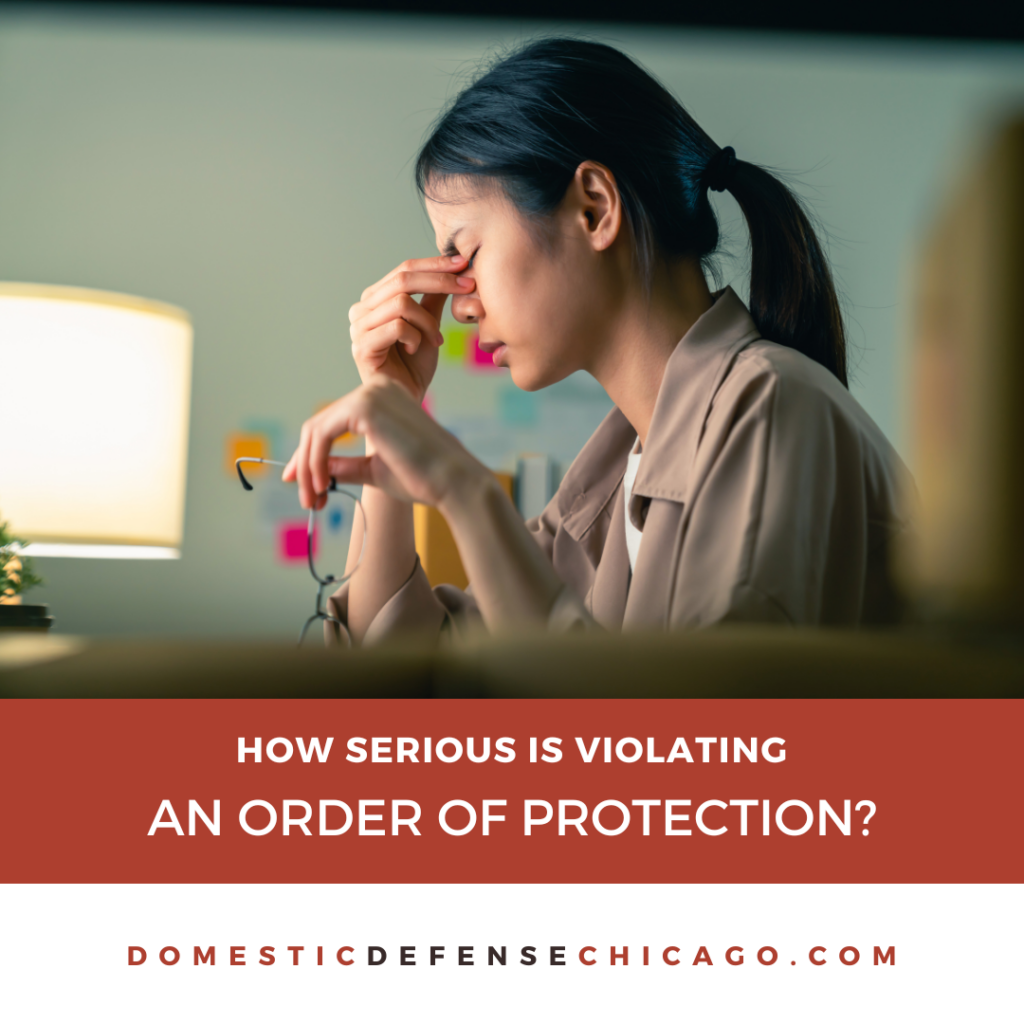
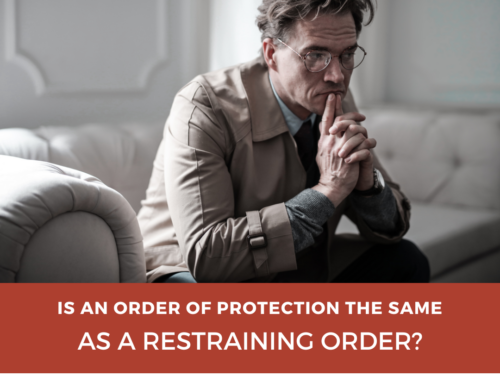
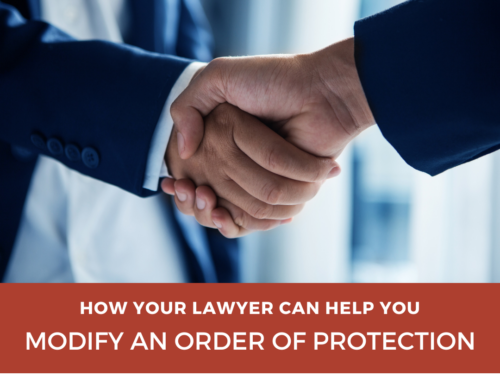
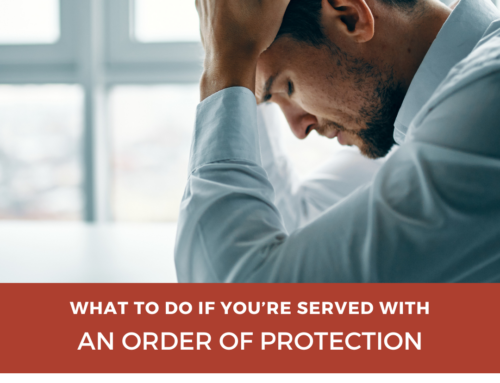

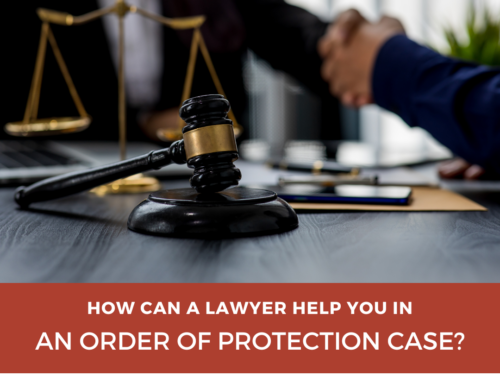
Leave A Comment
You must be logged in to post a comment.